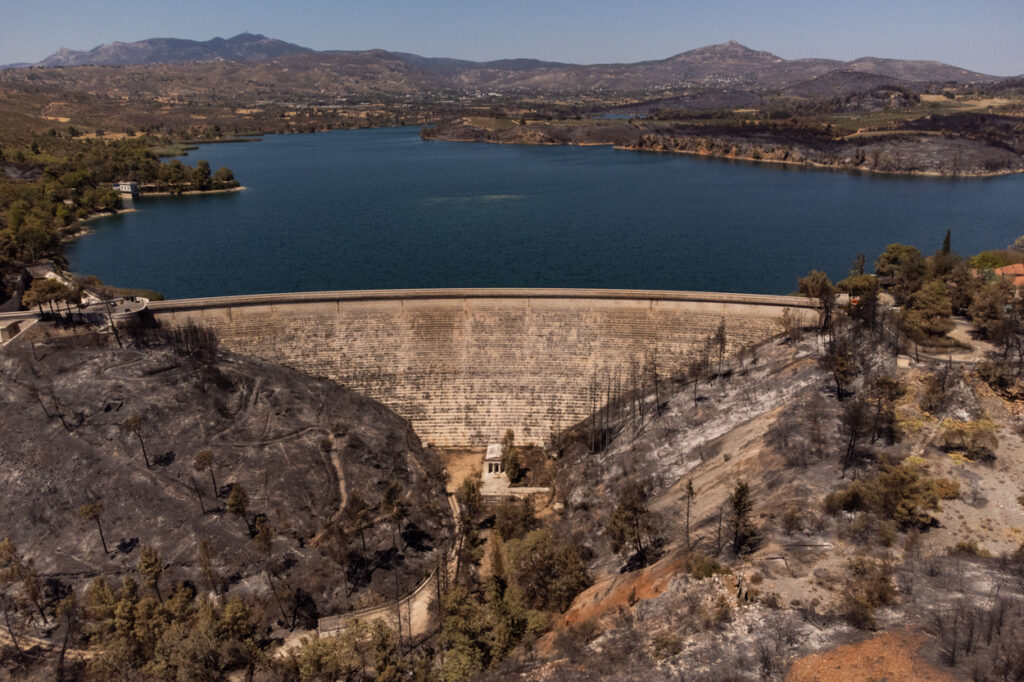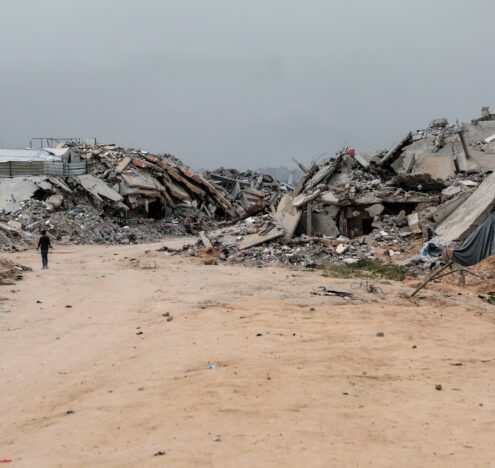The fires first erupted on the outskirts of the Attica region over the weekend, but the signs were already visible in downtown Athens, the Greek capital. Large clouds of smoke reached the city center on Sunday afternoon. Across three days, the blazes burned through more than 150 square miles of forest, tearing toward the Athens suburbs and destroying homes and buildings along the way.
The fresh round of wildfires came amid a summer of record temperatures and following a spate of blazes around parts of Greece. In July, wildfires broke out in Stamata and Keratea, as well as on the island of Kos.
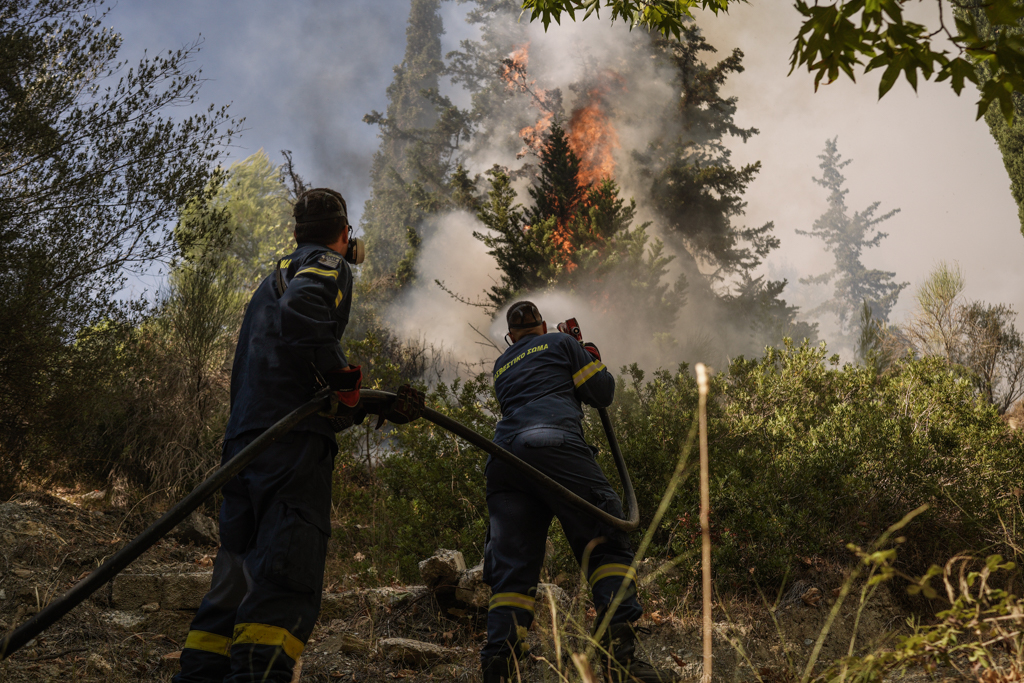
At the time, the country’s ministry of climate crisis and civil protection blamed the spread of the fires on strong winds. Vasilis Vathrakogiannis, a spokesperson for the fire department, told the press that those blazes were “the hardest that the fire brigade has faced” thus far this year.
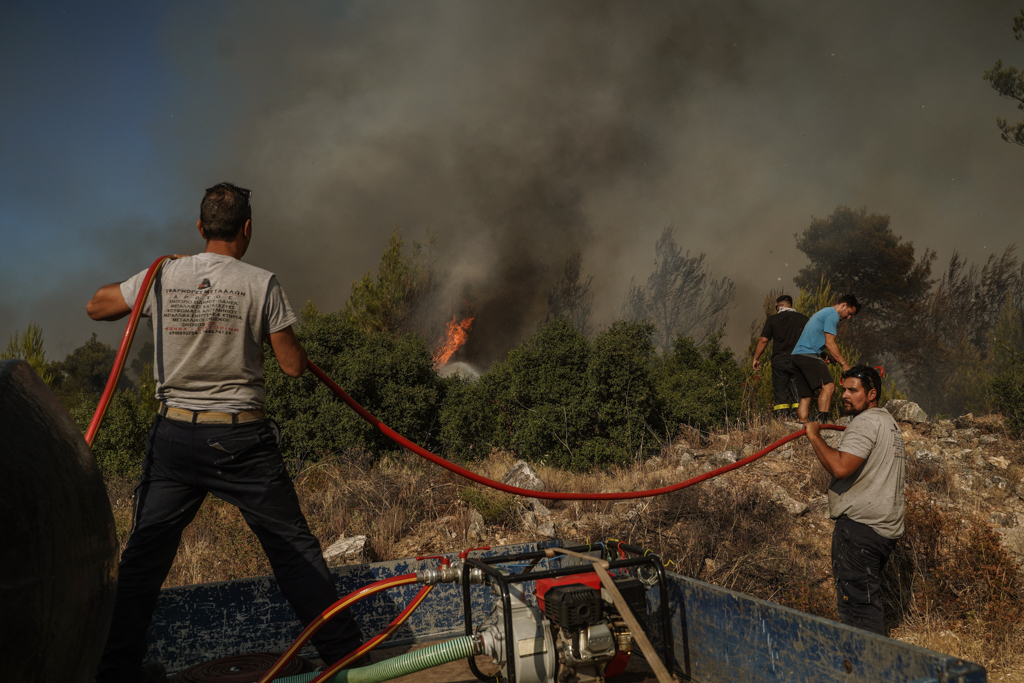
In July, the European Union’s climate change monitoring service announced that the previous month had been the hottest June on record to date. Meanwhile, climate experts have warned that this summer could be the hottest on record.
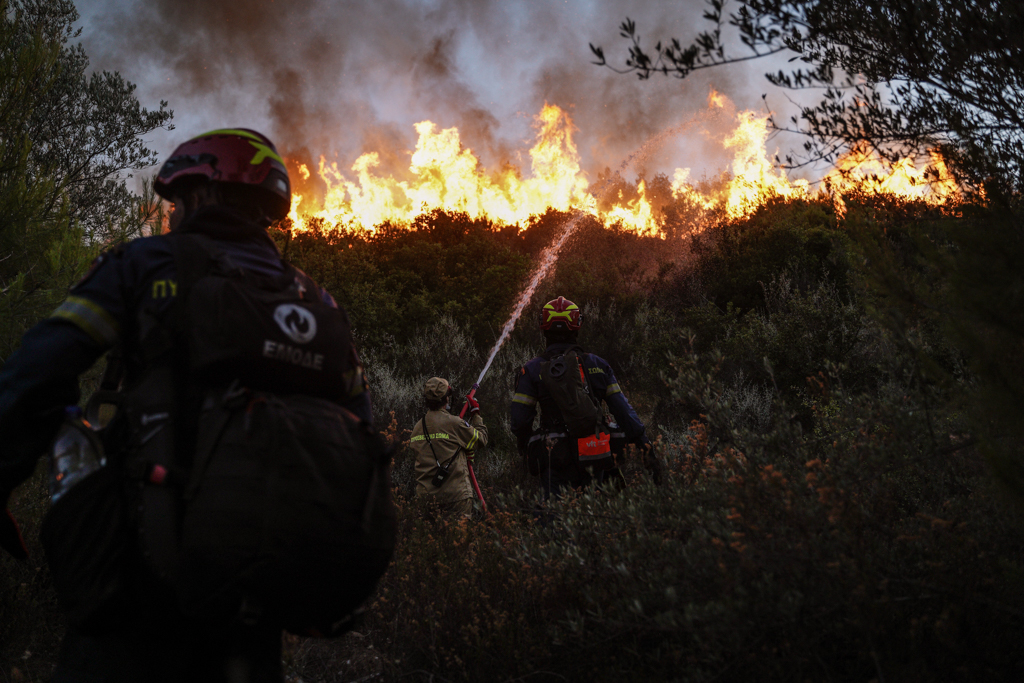
In recent years, Greece has endured especially hot summers, and wildfires have broken out across several parts of the country, often racking up large death tolls.
In July 2023, wildfires in the Evros region, which hugs Greece’s border with Turkey, resulted in evacuations and killed dozens of people. That month, fires hit several parts of mainland Greece and a handful of islands. In Rhodes, the blazes forced thousands of tourists to flee.
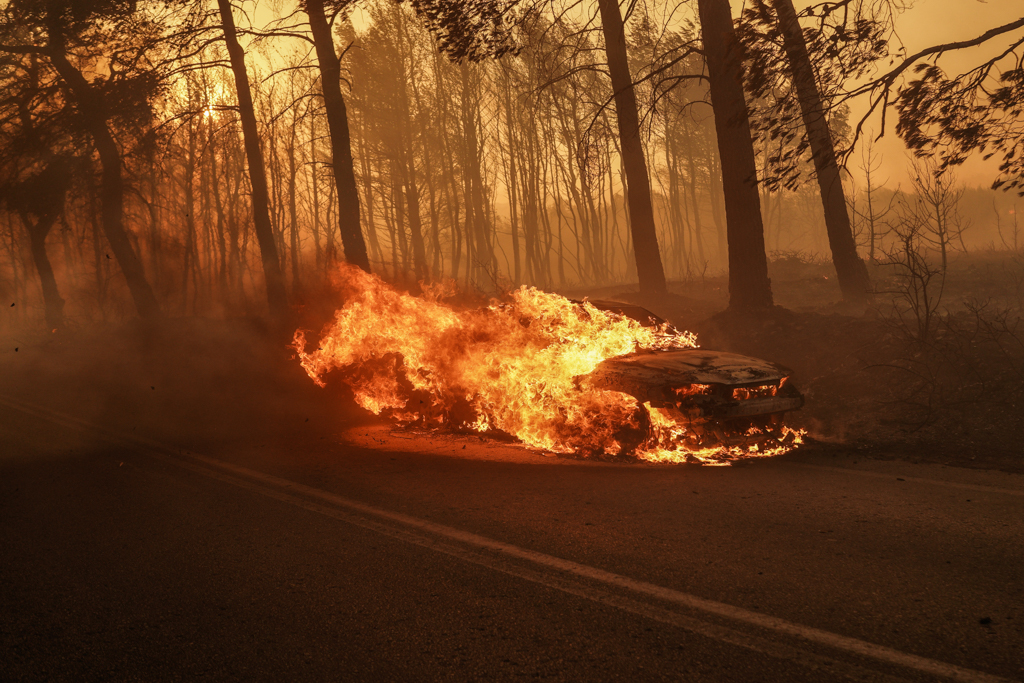
The latest spate of wildfires near Athens killed a woman in a small factory in Patima Vrilission. Authorities said the blazes ripped through some 100,000 acres of land and left dozens of people injured. Residents in several parts of Attica had to flee their homes, while the fires also forced the evacuation of some hospitals.

On Wednesday, local media reported that fires have burned up more than 23% of all the forest in the Attica region throughout the last seven years.
Since 2017, some 750,000 acres of forest land has been lost to such wildfires. The latest fires alone burned away some 2.5% of the Attica area, according to the local daily Kathimerini.
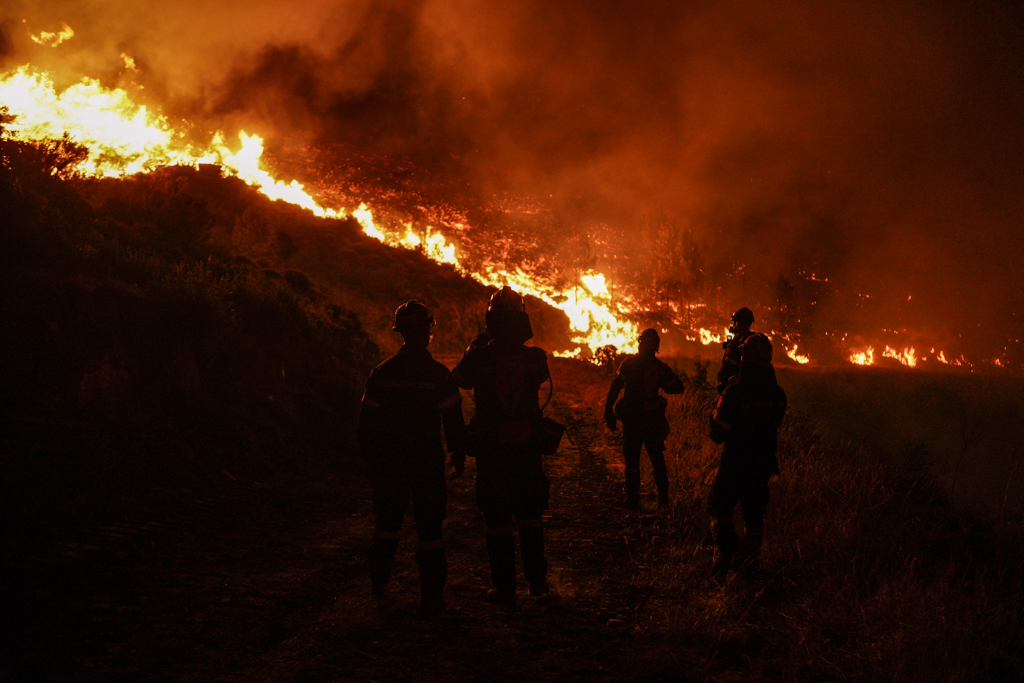
The Athens-Macedonian News Agency reported that Greek Prime Minister Kyriakos Mitsotakis convened a meeting Tuesday at the country’s ministry of climate crisis and civil protection, where he said the government “strive[s] to improve every year, although the conditions unfortunately keep becoming more challenging.”
Meanwhile, opposition parties have criticized Mitsotakis and his ruling right-wing New Democracy party over their management of wildfires and the climate crisis.
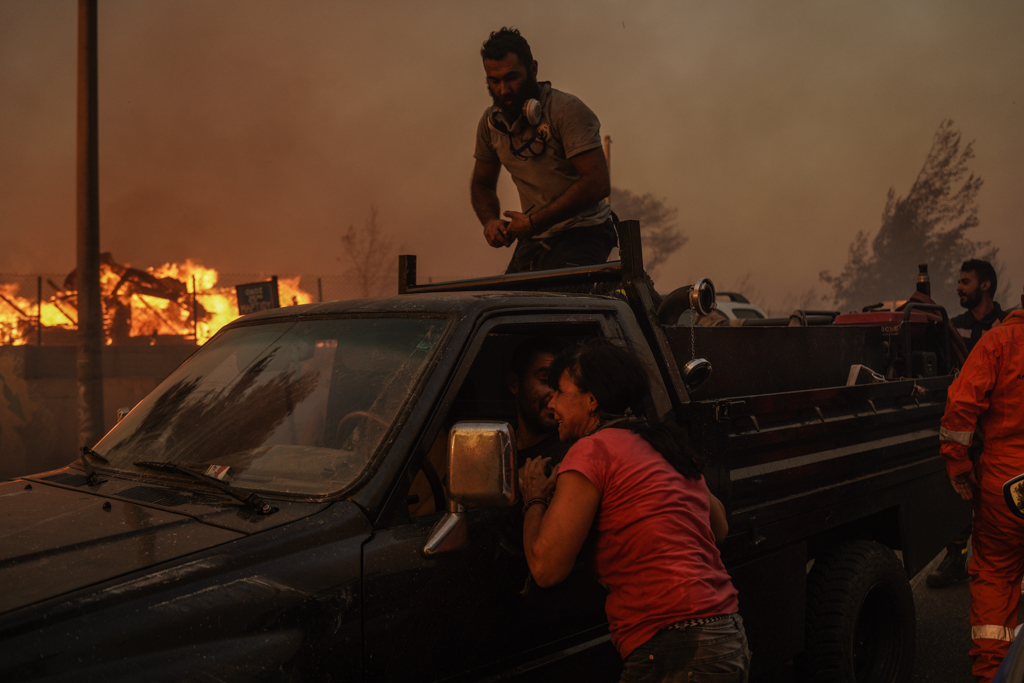
Stefanos Kasselakis, leader of the left-wing Syriza opposition party, blamed Mitsotakis and the government for the destruction, describing authorities tasked with managing the crisis as “under-staffed, under-equipped, and totally uncoordinated.”
In recent years, critics have also blamed the New Democracy government for ramping up the number of police hires while not bolstering the country’s firefighting forces.
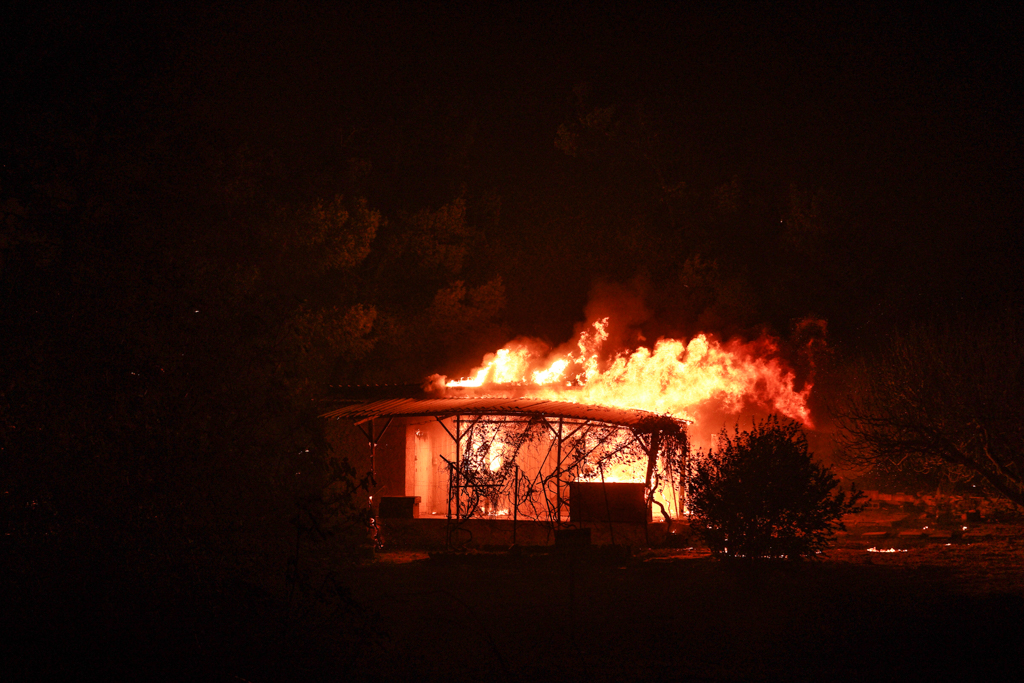
This week, the European Commission said it would send assistance to Greece and neighboring Albania, where fires have continued to burn along the country’s border region with North Macedonia throughout the last week.
This year’s latest fires prompted widespread concern due to how close they reached to Athens, whose metro area is home to more than three million people.
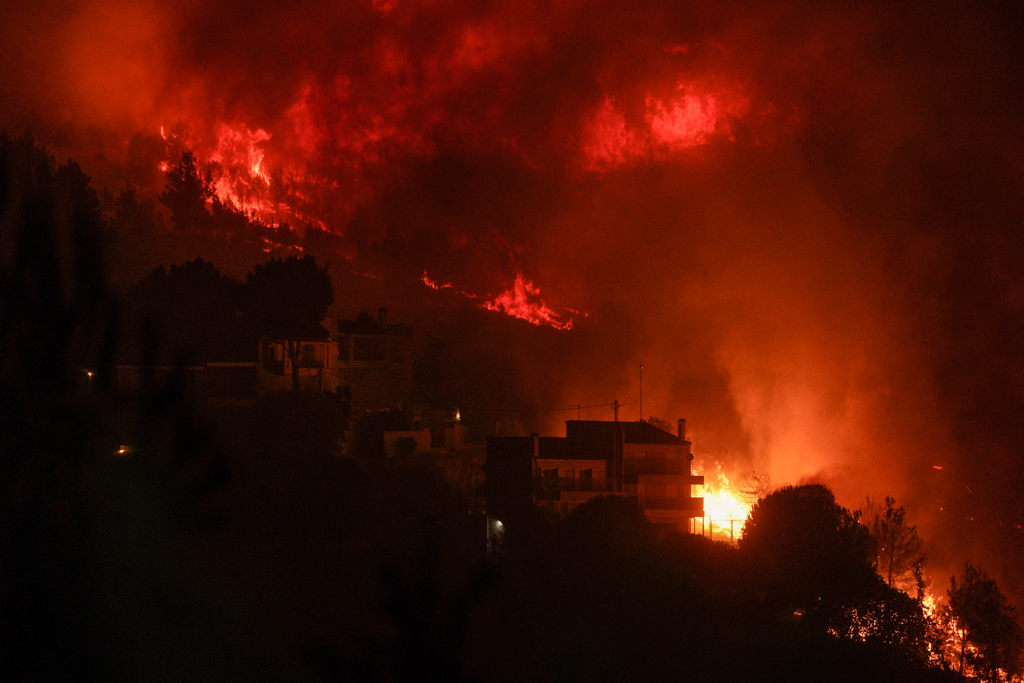
Firefighters and volunteers in suburbs, towns, and villages around Attica fought the fires since Sunday, but the decrease in winds on Tuesday helped them in their effort to isolate the blazes. More than 700 firefighters had been deployed to try to push back the fires.
Kostas Tsigas, the president of the Union of Fire Brigade Officers, told local press that the Attica fires were the most difficult the country has endured in the last two decades.
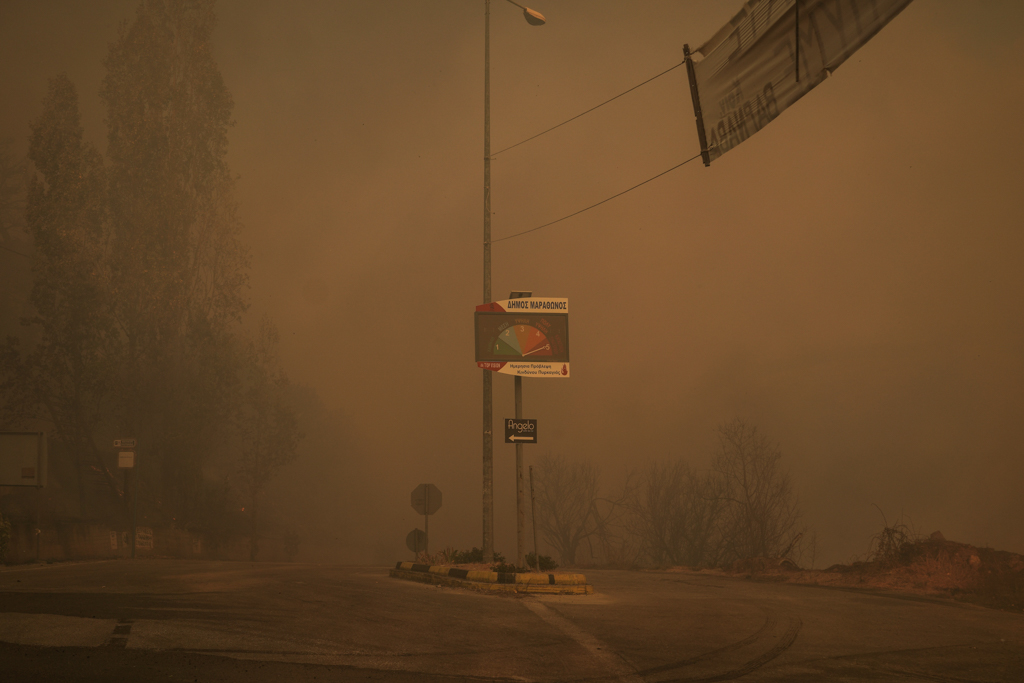
Back in July, EU agencies sounded the alarm on the dangerous conditions in southern Europe, warning that “swathes” of the region were at “extreme risk” of wildfires as summer temperatures soared. In a recent report, Copernicus, the EU climate change service, said that 2024 was on track to become the hottest year on record.
